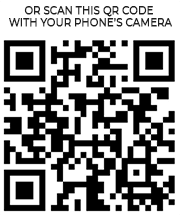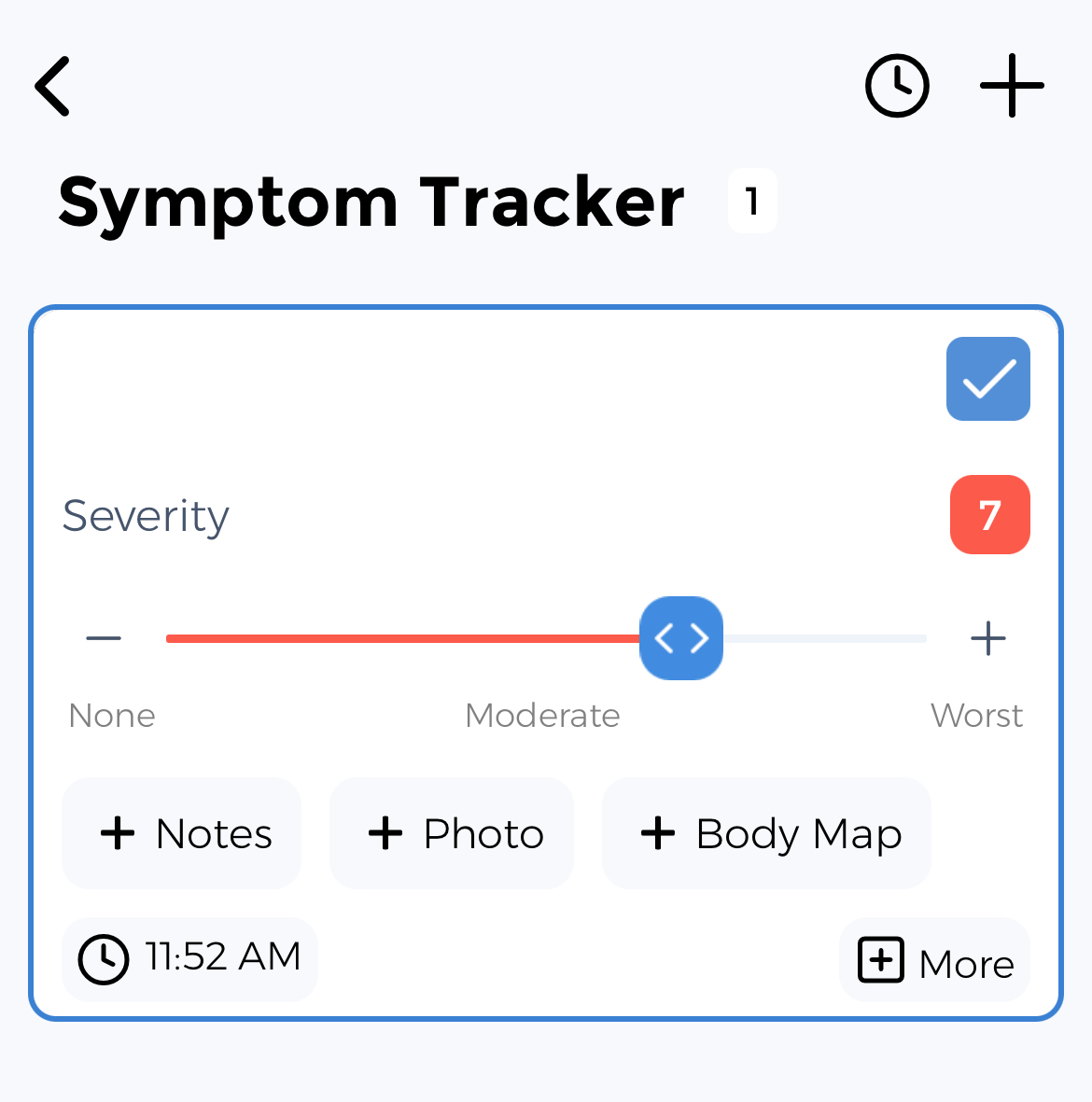Frozen Shoulder Symptom Tracker: Your Health Assistant
Living with Frozen Shoulder means dealing with shoulder pain, limited range of motion, progressive stiffness, and more. But here's the truth: Data is your most powerful tool. Every logged symptom reveals patterns—so you can take informed action.
Frozen shoulder (adhesive capsulitis) involves progressive stiffness and pain in the shoulder joint due to thickening and tightening of the joint capsule. It typically progresses through freezing, frozen, and thawing phases over 1-3 years. Tracking pain, range of motion, and treatment effectiveness helps manage this condition and optimize recovery.
Key Frozen Shoulder Symptoms You Should Track
Struggling with symptoms like these? Tracking them reveals patterns, triggers, and how they impact your daily life.
Shoulder pain
Limited range of motion
Progressive stiffness
Pain worse at night
Difficulty with overhead activities
Inability to reach behind back
Pain with external rotation
Decreased function
Muscle atrophy
Compensatory movement patterns
Track Your Frozen Shoulder Treatments
Tracking how these common treatments affect your symptoms can help you and your healthcare provider optimize your care plan:
Our tracker helps you monitor when you take medications and how they affect your symptoms over time.
Standardized Frozen Shoulder Assessments
Complete these evidence-based assessments in the App to measure your severity and monitor your progress:
⚡ Knowledge Is Your Superpower
The difference between feeling overwhelmed by Frozen Shoulder and feeling in control starts with data. When you track your symptoms, you transform uncertainty into clarity. Every data point brings you closer to understanding your unique patterns.
It's free to try for anyone—whether you're managing your own condition, supporting a child, helping an aging parent, or assisting a partner. Our tracker adapts to your specific role in the health journey.
How the CareClinic Frozen Shoulder Symptom Tracker Adapts to Your Needs
Adults
Caregivers
Parents of Children
Young Adults
Your Complete Frozen Shoulder Management Toolkit
Uncover Patterns & Insights
Map your Frozen Shoulder symptoms like a detective solving a case.
Understand Your Medication's Impact
Turn guesswork into strategy. See how treatments affect your well-being with clear health insights.
Objectively Measure Your Progress
Use clinically validated tools to objectively measure your progress.
Other Tools You May Like...
Plus 4 more specialized tracking tools available
Access All Tracking ToolsAlso Supports Other Conditions Like
Diabetes Type 2 Tracker
Diabetes Type 2 warriors use our tracker to monitor increased thirst, frequent urination.
Thyroid Disorders Tracker
Thyroid Disorders warriors use our tracker to monitor fatigue, weight gain or loss.
Rheumatoid Arthritis Tracker
Rheumatoid Arthritis warriors use our tracker to monitor joint pain, joint swelling.
Parkinson's Disease Tracker
Parkinson's Disease warriors use our tracker to monitor tremor, slowed movement.
Success Stories from Our Community
"I learned that what I thought was Frozen Shoulder was sometimes actually Diabetes Type 2. This holistic approach has been game-changing for my overall health."
"I wish I'd started tracking my Frozen Shoulder years ago. At my lowest point, but within 15 months of using this app, I slept better than I had in years."
Take Control of Your Frozen Shoulder Journey
Transform from feeling like a passive patient to becoming an informed self-advocate. Join thousands who've discovered new insights about their condition.
Designed by people who understand the daily challenges of managing chronic conditions, we're here to support you and your ❤️ ones.
Download Your Frozen Shoulder Tracker NowYour Data is Protected
Private & Secure
HIPAA Compliant
GDPR Compliant
Never Sell Data
Your data is yours: You get full control over who can view your information. CareClinic keeps all your data secure and encrypted.
References based on studies by:

